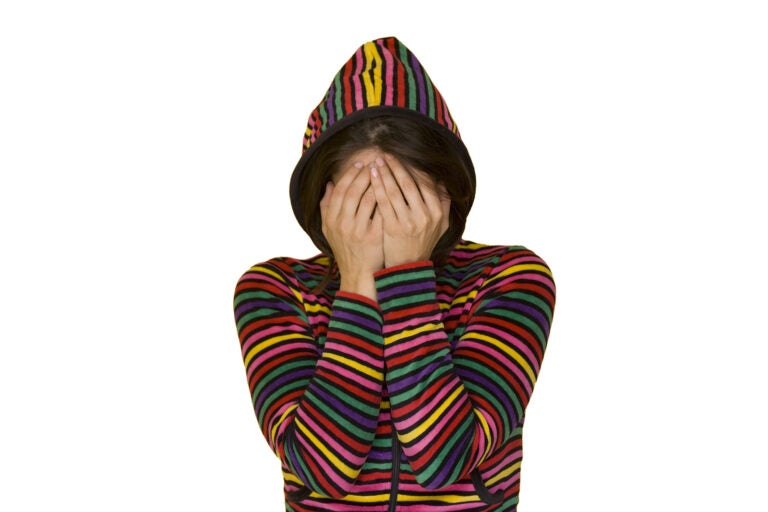Untangling Shame and Its Effects On Our Health
A look at the roots of shame, and how it affects our behavior, our choices, and our health.
Listen 50:03
a teenage girl with shame isolated on white
Shame has a way of making us feel alone — like we’re the only ones in the world struggling with something. It can make us withdraw or feel depressed, out of control, and helpless. In the worst cases, it can destroy our self-esteem and even lead to self harm. But shame can also be a force for positive change, from enforcing social norms, to pushing us to improve our behaviors and circumstances.
On this episode, we untangle why we feel it, where shame comes from, and how it affects our behavior and health. Lots of us have hangups about what we look like in swimsuits — but wait until you hear about what “kind of attire” used to be acceptable at pools. We’ll explore the evolutionary roots of shame, how one woman discovered what was behind her monthly meltdowns, and how shame figures into treatment approaches in the opioid epidemic.
ALSO HEARD:
- We usually think of shame as a bad thing — something that makes us feel bad and can hurt our mental health. But there’s an important function to shame. We talk with social psychologist Daniel Sznycer about the evolutionary function of shame, what makes it so powerful, and why we sometimes feel it even when we haven’t done anything wrong.
- By most measures, Shalene Gupta was a smart, accomplished woman — but she harbored what she experienced as a shameful secret. Every month, just before her period, her emotions would go haywire, resulting in nuclear fights that destroyed her relationships. After years of suffering, she finally found out why — a condition called Premenstrual Dysphoric Disorder (PMDD). Reporter Hauwa Otori looks into what PMDD is, why it remains relatively unknown, and how it can be treated. Gupta’s book is “The Cycle: Confronting the Pain of Periods and PMDD.”
- Morgan Dykeman talks about the connection between shame and disordered eating, the effects on her health, and how she eventually recovered.
- People living with addiction often feel ashamed — or they are shamed by others around them — which can often serve as a barrier to seeking help. That barrier has become especially dangerous when it comes to xylazine, otherwise known as tranq. It’s a veterinary tranquilizer that’s infiltrated the illegal drug supply, and can cause severe wounds. Reporter Buffy Gorilla talks with treatment providers working in Philadelphia’s Kensington neighborhood, widely regarded as the epicenter of this crisis, about their campaign to help people suffering from xylazine-related wounds.
Segments from this episode
WHYY is your source for fact-based, in-depth journalism and information. As a nonprofit organization, we rely on financial support from readers like you. Please give today.






